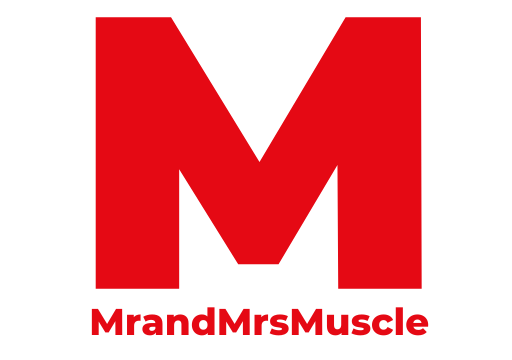When it comes to muscle recovery, the foods you eat make a huge difference. Eating the right foods can help reduce inflammation, speed up healing, and increase muscle strength. In this blog post, we’ll be looking at 8 of the best foods for muscle recovery. From fruits and vegetables to dairy and proteins, these foods are packed with nutrients that can help you get back to your workouts faster. So if you’re looking for a way to get back into action more quickly, read on to find out more about the best muscle recovery foods.
Why muscle recovery is important?
Muscle recovery is a crucial aspect of any fitness regimen. After an intense workout, our muscles experience microscopic damage, which is a natural part of the muscle-building process. During recovery, these damaged muscle fibers are repaired and rebuilt, resulting in increased muscle strength and size.
Proper nutrition plays a significant role in this recovery process. Consuming the right foods for muscle recovery provides our bodies with the essential nutrients needed to repair and rebuild muscles efficiently. Without proper nutrition, our muscles may not fully recover, leading to slower progress in our fitness goals and an increased risk of injury.
What to eat after a workout for optimal recovery?
Eating the right foods after a workout can help speed up muscle recovery and improve overall performance. Your body needs a combination of protein and carbohydrates to help repair and rebuild muscles. Opt for foods like lean protein sources such as chicken or tofu and complex carbohydrates such as sweet potatoes or quinoa. Adding fruits and vegetables can also provide the necessary vitamins and minerals to aid in recovery. Be sure to also stay hydrated by drinking plenty of water and electrolyte-rich fluids.
8 best foods for muscle recovery
After a strenuous workout, your body needs to recover. This recovery nutrition should focus on refueling and rehydrating to repair and grow. Here are the eight best foods for muscle recovery.
1. Cottage cheese and yoghurt:
Both are excellent sources of whey and casein protein. These proteins are digested at different rates, giving your muscles a sustained supply of amino acids for recovery.
2. Starchy vegetables:
Sweet potatoes, squash and pumpkin are high in complex carbohydrates, providing your body with a long-lasting source of energy. They are also rich in antioxidants and vitamins to reduce inflammation and support recovery.
3. Watermelon:
This juicy fruit is great for hydration and contains essential nutrients for muscle function. It’s also rich in amino acids to promote muscle recovery.
4. Salmon:
This fish is high in protein, omega-3 fatty acids, vitamin B, potassium and selenium. It’s great for reducing inflammation and promoting muscle growth.
5. Eggs:
They are a great source of protein and other essential nutrients for muscle recovery. The protein in eggs is easily absorbed by the body, making it an excellent option after a workout.
6. Blueberries:
These small fruits are packed with antioxidants to reduce inflammation and promote muscle recovery. They are also high in vitamins C and K, which are essential for healthy muscles.
7. Almonds:
These nuts are rich in protein, healthy fats, vitamin E and magnesium. They can help reduce muscle soreness and inflammation.
8. Quinoa:
This ancient grain is a complete protein source, meaning it contains all the essential amino acids. It’s also high in fibre and complex carbohydrates to provide sustained energy for muscle recovery.
To incorporate these foods into your diet, try having a Greek yoghurt with blueberries for breakfast, a salmon salad for lunch, and a sweet potato with quinoa for dinner. Don’t forget to drink plenty of water to stay hydrated.
In addition to these foods, it’s important to get enough rest, stretch and practice good post-workout habits for quick muscle recovery. Remember to listen to your body and give it the time it needs to recover and grow stronger.
How to incorporate these foods into your diet
Now that you know the best foods for muscle recovery, you may be wondering how to incorporate them into your diet. Here are some ideas to get you started:
1. Smoothies:
Blend up some protein powder, berries, Greek yogurt, and almond milk for a tasty post-workout smoothie.
2. Omelets:
Make an omelet with eggs, spinach, and mushrooms for a protein-packed meal that also includes anti-inflammatory foods.
3. Salads:
Load up your salads with dark leafy greens, cherry tomatoes, avocado, and grilled chicken for a nutrient-dense meal.
4. Sweet potato fries:
Slice sweet potatoes into fries, toss them in coconut oil, and bake in the oven for a healthy carb source that also contains vitamins A and C.
5. Salmon:
Grill up some salmon and serve it with quinoa and roasted vegetables for a complete post-workout meal.
6. Trail mix:
Mix together almonds, pumpkin seeds, dried cherries, and dark chocolate chips for a convenient on-the-go snack.
7. Cottage cheese:
Pair cottage cheese with sliced fruit and drizzle honey on top for a protein and carbohydrate-packed snack.
8. Stir-fry:
Stir-fry some vegetables with tofu or lean protein and serve with brown rice for a nutrient-packed meal.
Remember, incorporating these foods into your diet doesn’t have to be difficult or time-consuming. With a little planning and creativity, you can easily reap the benefits of these muscle-recovery superfoods.
Other quick tips for muscle recovery
In addition to incorporating the best foods for muscle recovery into your diet, there are other tips and practices you can adopt to speed up the recovery process. These tips will help you bounce back from intense workouts faster and keep your muscles in peak condition. Here are some additional tips for quick muscle recovery:
– Stay hydrated:
Drinking enough water is essential for muscle recovery as it helps flush out toxins and supports cellular functions.
– Get enough sleep:
Quality sleep is when your body repairs and rebuilds damaged muscle tissues, so aim for 7-9 hours of sleep each night.
– Stretch and foam roll:
Gentle stretching and foam rolling can help release tension in your muscles, increase blood flow, and alleviate soreness.
– Take cold showers or ice baths:
Cold therapy can reduce inflammation and minimize muscle damage. Consider taking a cold shower or immersing yourself in an ice bath after an intense workout.
– Use compression garments:
Wearing compression garments like sleeves, socks, or tights can improve blood circulation, reduce swelling, and speed up muscle recovery.
– Avoid excessive alcohol consumption:
Alcohol can impair muscle repair and delay recovery. Limit your alcohol intake, especially after intense workouts.
– Consider supplements:
Certain supplements like protein powders, BCAAs (branched-chain amino acids), and omega-3 fatty acids may support muscle recovery. Consult with a healthcare professional before incorporating supplements into your routine.
– Listen to your body:
Pay attention to your body’s signals and take rest days when needed. Pushing through extreme fatigue or soreness can lead to injury and hinder muscle recovery.
By implementing these additional tips along with consuming the best foods for muscle recovery, you’ll be on your way to optimizing your workout results and achieving your fitness goals in no time. Remember, a well-rounded approach that combines nutrition, hydration, rest, and recovery practices will help you maintain healthy, strong muscles and prevent injuries.


